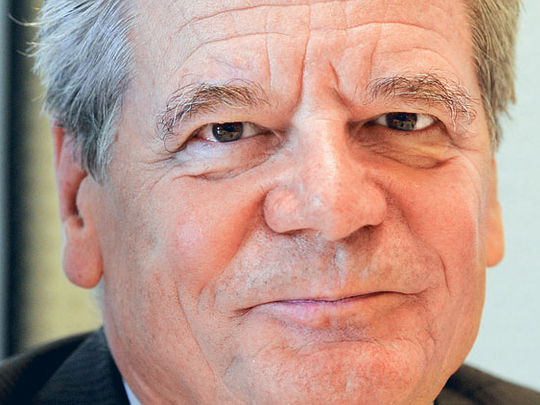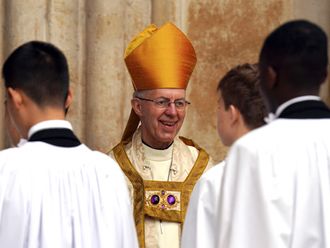
Brussels: Angela Merkel is facing a critical presidential contest this week that could end her political career after a Protestant pastor, nominated by the opposition, became favourite to win a vote widely seen as a challenge to her leadership.
Joachim Gauck, 70, an anti-Communist activist under East Germany's former dictatorship, is proving a popular figure even among the German Chancellor's own Christian Democrat and Liberal coalition government. The silver-haired, self-styled independent has described himself as a "Leftist, liberal conservative".
Gauck is backed by the Social Democrats and Greens, but has won wider support as a national figure in an anxious Germany. He said: "I'm neither red nor green, I'm Joachim Gauck."
Merkel's candidate for the largely ceremonial role is Christian Wulff, 51, a safe centre-Right politician from Lower Saxony. The career politician was her second choice in a presidential contest that has become seen as a symptom of her leadership's drift and decline.
Defeat for Merkel's choice is expected to lead to the collapse of her government, which has been damaged by reacting slowly to the Greek and eurozone debt crisis that is on track to cost German taxpayers more than pounds 100 billion euro (Dh452.5 billion) in bailouts.
The presidential race, which will be decided by German MPs and senators on Wednesday, followed the unexpected resignation of President Horst Kohler this month, after the Christian Democrat made comments about the German role in Afghanistan.
Merkel urged Ursula von der Leyen, her minister of social affairs, forward to become Kohler's replacement and Germany's first female president. But within hours of the chancellor announcing von der Leyen's candidature, unprecedented internal dissent erupted within her party. Merkel was forced to climb down and select Wulff instead.
Gauck's campaign has thrived against the background of division. He has painted himself as the humble leader Germany needs. It is a stance that is underlined by his friendship with Merkel, the daughter of a pastor who also grew up in Communist East Germany and led the tributes at his 70th birthday in January. "I was surprised and flattered to be asked to run for the post. But I didn't seek it, and it definitely wasn't my intention to unseat Merkel," he said.











